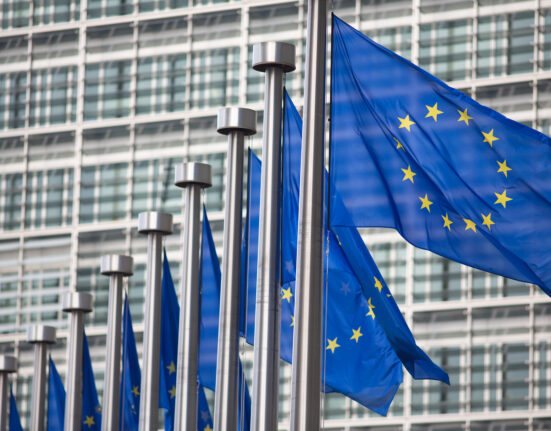European citizens, including children and pregnant women, are facing a silent threat – PFAS contamination. These harmful ‘forever chemicals’ have been linked to cancer and various health risks. In response to this growing crisis, EU environment and climate ministers have taken a proactive step by agreeing to undergo blood tests for PFAS substances.
The initiative spearheaded by the Danish Ministry of Environment and Gender Equality, in collaboration with the European Environmental Bureau (EEB) and ChemSec, aims to shed light on the pervasive issue of PFAS pollution affecting individuals and ecosystems across Europe.
Ministers who volunteered to participate will have their blood samples meticulously examined for 13 different types of PFAS compounds known for their persistence in nature and bioaccumulation in humans. The move signifies a crucial effort to raise awareness about the detrimental effects of these chemicals on public health and the environment.
As Denmark assumed the EU Council Presidency, Minister Magnus Heunicke took swift action by launching this vital initiative. Stressing the urgency of addressing PFAS pollution, Heunicke emphasized that preventive measures must be implemented at both national and EU levels to mitigate further contamination.
In a bold display of leadership, Heunicke led by example and underwent testing alongside Jessika Roswall, the European Commissioner for Environment. Reflecting on the gravity of the situation, Heunicke stated,
“PFAS accumulates both in the environment and in humans… It is very difficult to deal with.”
He highlighted the carcinogenic potential of PFAS along with its adverse impacts on aquatic life.
The joint proposal put forth by Denmark, Germany, Netherlands, Norway, and Sweden calls for stringent regulations under the EU’s REACH framework to ban almost all forms of PFAS production, sale, and usage. This legislative move underscores a collective commitment to safeguard public health from hazardous chemical exposure.
Patrick ten Brink from EEB underscored that no one is immune to chemical pollution’s consequences – be it individuals or ecosystems. Highlighting alarming health risks associated with PFAS exposure such as cancer and reproductive disorders among others – Brink condemned profit-driven decisions made by manufacturers at the expense of human well-being.
PFAS constitute a group of over 10,000 synthetic chemicals widely prevalent in industrial processes as well as everyday consumer products like cookware coatings and food packaging materials. Due to their persistent nature leading them being termed ‘forever chemicals’, they pose significant challenges in terms of environmental remediation efforts post-contamination incidents.
Experts warn against underestimating the severity posed by ongoing PFAS pollution which has seeped into nearly every European’s body system including vulnerable demographics like children. The looming threat demands urgent action towards legislation enforcing accountability among producers coupled with rigorous monitoring mechanisms ensuring compliance.
Addressing concerns surrounding escalating costs associated with mitigating PFAS contamination fallout – estimated at billions annually – policymakers face compelling reasons to adopt proactive regulatory measures without succumbing industry pressures hindering progress toward cleaner environments resilient against toxic threats like PFAS traces persistently lurking around unsuspected corners.









Leave feedback about this